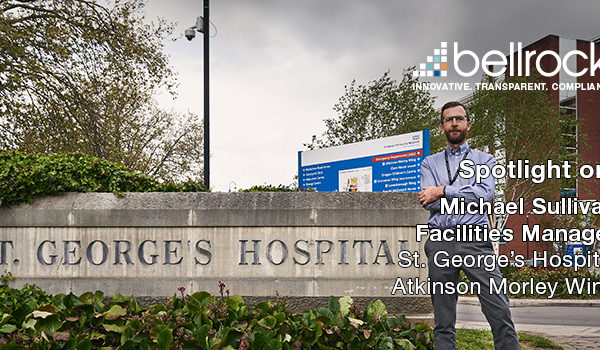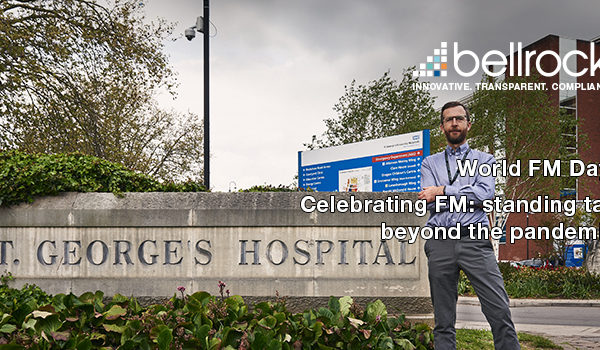As we turn our attention to recommissioning our estate, one of those areas that may be overlooked will be the outside of the building and surrounding grounds.
For many, the return to work after approximately two months without external maintenance will coincide with the peak growing season. So what jobs are essential in the recommissioning of the site?
External Aesthetics
There are basic elements to get right first as the emphasis on all returning colleagues and visitors will focus upon safety. Have all the waste and litter collections been carried out correctly? Do you need to arrange a one-off additional clearance from the site to remove unwanted debris and waste?
A one-off enhanced pruning and landscaping programme to cut back grass, shrubs and trees may be necessary, given that we are now entering the growing season. April has been both warm and very dry, which may result in a need for some replanting.
The positive mental health impact on your colleagues of having an inviting open space environment around the work setting should not be underestimated. Many colleagues have been in lockdown for approximately two months or more, and the power of providing an outdoor space for them to enjoy (with social distancing rules observed) will certainly help them cope better with the returning to work process.
Only a few weeks without pest control can lead to infestation, therefore use the time in the run up to return to revisit any pest control issues. Be prepared that there may be some new unwelcome visitors to deal with before you become operational.
The normal annual cycle of activity will also need to be considered. It’s that time of year to run clearance activities around guttering, drainage channels and car parking drains. Open water areas and balancing ponds may be a much sought after space for your colleagues, therefore, now is the time to check on life rings, signage and new messages appropriate to social distancing.
Waste Management Workforce during Lockdown
On 20 March 2020, the Environmental Services Association (ESA) confirmed that members of the Waste sector were now classed as key workers. This follows assurances from the Department for Environment, Food and Rural Affairs (Defra) that it is safe for waste workers to continue working.
To ensure worker safety and hygiene, the ESA has urged workers to continue to correctly wear Personal Protective Equipment (PPE), to follow the government advice on good hygiene practice and to promptly report any symptoms of illness.
Waste considerations during partial / full lockdown
We have set out some key considerations during lock-down and when reopening.
Storage of Waste
- In order to reduce unnecessary risk to workers, most waste refuse sites have been closed to the public. This can lead to increased risk of fly tipping or members of public using commercial bins to dispose of domestic waste.
- Consideration must be taken to ensure onsite risks are reduced.
- Low temperatures and high humidity can prolong the life of the virus. Where possible, our Supply Chain partners recommend that COVID-19 contaminated waste is stored in a warm and dry area.
- Ensure that, where practicable, commercial bins are either stored away from public access or locked.
Contaminated Waste
- Review site-specific assignment instructions, which should include partial / dynamic / complete lockdown procedures.
- Consider whether these procedures apply to the occupied status of the building.
- Disposal of waste from confirmed or suspected COVID-19 areas.
As per guidelines from the Government, waste from possible cases and cleaning of areas where possible cases have been (including disposable cloths and tissues):
Should be put in a plastic rubbish bag and tied when full.
- The plastic bag should then be placed in a second bin bag and tied.
- It should be put in a suitable and secure place and marked for storage until the individual’s test results are known.
- Waste should be stored safely and kept away from children. You should not put your waste in communal waste areas until negative test results are known, or the waste has been stored for at least 72 hours.
- If the individual tests negative, it can be put in with the normal waste.
- If the individual tests positive, it should be stored for at least 72 hours and put in with the normal waste.
If storage for at least 72 hours is not appropriate, arrange for collection as a Category B infectious waste either by your local waste collection authority, if they currently collect your waste, or otherwise by a specialist clinical waste contractor. They will supply you with orange clinical waste bags for you to place your bags into so the waste can be sent for appropriate treatment.
More information around cleaning in a non-healthcare setting can be found on the Government website Covid-19 Decontamination in Non Healthcare Settings.
Collections
Consider the current frequency of your collections. Are they suitable for your future requirements? Are additional containers required to accommodate an increase in waste?
- Ensure that you consider your PPE has a safe way to be disposed of. This may not be suitable for general waste bins.
- If you have closed your site, ensure that you contact your waste provider prior to re-opening to ensure collections resume.
- Consider if signed collection notes are required to reduce person to person contact.
Compactors
- Where a compactor or baler is operated on site, ensure that maintenance still takes place or consider decommissioning the equipment until it is safe to maintain and resume operation.
- Allow for delays in response to repairs as a result reduced workforce.
Disposal of PPE – masks and gloves
Employees travelling to work on public transport are likely to wear masks and gloves. It is important when employees arrive within the workplace there is a facility to dispose of any masks and gloves in a controlled way to limit the spread of the virus within the workplace. It is recommended plastic bags and a bin is provided on the entrance to the building that enables employees to dispose of PPE. In line with the above guidance, PPE waste should be double bagged and put in the general waste.
Where can Bellrock help?
Bellrock have strong relationships with key suppliers in the Waste Industry who can support our clients when considering changes that can be made to their waste collection schedules or services. Our waste Supply Chain partner has a network of available disposal options. This allows them to move waste around the disposal supply network if there are peaks in requirements in certain areas or hot spots within the UK.
Classification of COVID-19 Contaminated Waste – Public Health England have confirmed that any waste either confirmed or with the potential to be contaminated with the COVID-19 should be classified as a Category B Clinical (UN3291, EWC 18 01 03*). Our current waste Supplier Chain partner has the infrastructure and competence to collect both safely and in accordance with legal requirements.
Key Points
- The return to the workplace coincides with peak growing season, therefore a need to identify essential landscaping tasks
- Lack of pest control in un-occupied spaces could lead to infestation. Identify or re-visit any potential issues
- Consider your normal annual cycle of activity around guttering and draining, operational equipment, etc
- Keep waste storage bins safe and secure from public access
- Be aware of site specific instructions in respect to contaminated waste, following Government guidelines
- Ensure you are aware of, and have taken the appropriate measures for disposal receptacles for PPE
Mike Smart | MD Workplace & Compliance Services
mike.smart@bellrockgroup.co.uk
+44 (0)7833 050 564







